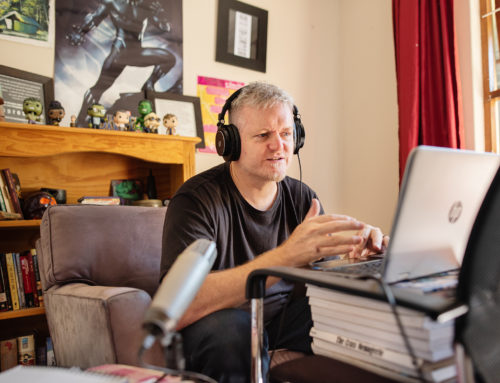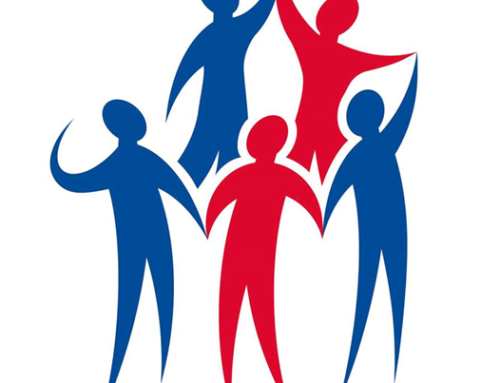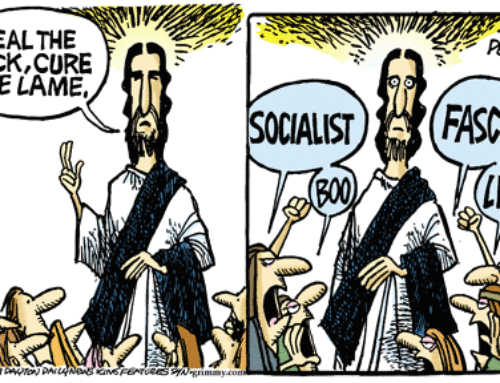Our eldest daughter Monrovia, who is now six and a half years old, was born profoundly deaf. We first heard the words “profound hearing loss” when she was three weeks old, after failing multiple hearing tests. At the time I felt pretty overwhelmed by first-time parenthood, so the idea of parenting a newborn with special needs felt quite heavy and scary.
Here’s an excerpt from an email I wrote to friends after the appointment in which an audiologist told us she was deaf: “We chose the name Monrovia for a very specific reason, and now it seems more fitting than we could have predicted. When I spent time in West Africa, part of the time was in Monrovia, the capital city of Liberia, which had been devastated because of the awful Liberian civil war. My Liberian friends would always describe how beautiful the city had once been, and would speak with hope of what the city could become, even though it literally was falling apart. That image, of having great hope despite the surrounding circumstances, resonated with Matt and me. We wanted our child to be a person of hope and beauty even when that wasn’t what life or the world looked like at the moment. And here we are. In a place that seems so dark at the moment.
We hold this grief with the knowledge that even with M’s hearing loss we are so blessed, gifted, and privileged with a delightful and perfect child. At the same time it does feel that our immediate little world is crumbling, and we bear the weight of so much sadness right now. It sort of feels like we got robbed of this joyful beginning part of her life. Instead of just enjoying our new daughter, we are scheduling doctor’s appointments, handling insurance and specialists, researching hearing loss and learning an entire new glossary of terms. Most of all, we are incredibly broken feeling. So at the moment we are processing this, and coming to grips with a new reality for our lives.”
Six years later I can’t imagine any other narrative for Monrovia. Deafness, the word that I was initially unable to say without crying, quickly became our family’s normal. We deliberated very carefully when Monrovia was an infant and decided to pursue cochlear implants for her in order to give her access to sound. Implants do not fix deafness (nor was that our intention), but they mimic the way a typical hearing person’s hair cells work and enable some deaf people to develop spoken language. Monrovia had surgery when she was 9 months old; her implants were activated and she heard her first sound a month later! Having a deaf daughter has been one of the richest and most amazing gifts of my life, and it has shaped so much of our family’s life together.
I wouldn’t change either Monrovia’s deafness or our decision to get her cochlear implants, but there are aspects of having a deaf child that I wish others would know:
* Our complex feelings about her deafness don’t go away. We celebrate her deafness as much as we can and are very intentional about speaking to her deaf identity, but we also grieve what she misses out on as a deaf child living in a hearing world. This morning I stayed after school to watch how she was doing in her class. Within minutes I saw how she lagged behind her classmates in following verbal directions, and how she couldn’t simultaneously listen to the teacher and work like her hearing peers. Yesterday a kid called her name from 5 feet away and she didn’t hear it so the child ran off to play with other friends without her. In the morning the school bell rings at a tone that blends in with the sounds of a busy playground; as all the kids line up she is left alone playing until she looks up and sees an empty play structure. In a noisy restaurant she is completely lost in conversations. If someone speaks quickly she is still processing what they said when they move on to a new topic. Those complex feelings don’t go away, and so I wish the support wouldn’t go away either. Most friends of mine who have a deaf child are continually dealing with scenarios like this. It is amazing (and rare) to have a friend ask, “How are things going with Monrovia? Have you had any hard stuff with her deafness lately?”
*Our daughter is thriving. We are so grateful! She is in a mainstream class, on grade level, and can listen and speak spoken language even though she is deaf. But she works really, really hard. All day, every day! To keep up, to stay on track, to hear what you are saying, to focus, to process, to learn what new sounds are, to absorb new vocabulary. Unlike a typical hearing person, who can passively hear, assimilate and filter sounds, she must actively work at each of those things. So when you say, “I always forget she’s deaf!” I understand. But please know that we never forget; there are hidden parts of deaf life we are dealing with all the time: charging batteries, waterproofing her implants, finding subtitles for the movie so she can follow along, troubleshooting classroom issues (of which there are so many!)…We think about how to handle swim parties or sleepovers or talking on the phone to relatives…We field questions like, “Why does no one else at my school have implants but me?” or “Will I still have to wear implants when I grow up?” One of the biggest issues for Monrovia is that because she presents as a hearing child, it can be hard to convince people that she really still needs support as a deaf child. Yet she does.
*Please don’t say, “I wish I could turn off all the sound and just have silence like she can with her implants. She’s so lucky!” or “I think she kind of likes that she can’t hear everything. I know I would.” Really?! I can’t tell you how often I hear some variation of those comments. It minimizes her deafness and stings every single time. Instead you can ask her what it feels like when she takes her implants off at night, or what her favorite sound is, or when she wants to take her implants off. (Tonight when I told her I was writing this she said, “Tell them at night when I don’t wear my implants I can’t hear anything and I have to sign or read lips which is kind of hard.”)
*She will always be deaf. I know she doesn’t “sound” deaf. That’s because she started speech therapy when she was 7 months old, went to a deaf school that was a two hour round trip commute for four years, and still works hard on her speech and language at home and in therapy every week. I know “you’d never even know she’s deaf!” Yep. She is. I recognize that that phrase is intended as a compliment of some sort, but I cringe when someone says it (which is quite a bit.) For a long time her implants were the same color as her hair and camouflaged. All the time people would mention, “Wow! That’s so nice that you can’t even see her implants!” What do those comments communicate to Monrovia about one of the most significant things about her? My guess is as a child she interprets the following: It is better if you don’t sound deaf. It is better if no one can tell you are deaf. It is better if your implants blend in.
*It’s ok to talk about her implants or deafness because we talk and think about it all the time. If you see her implants it’s ok to ask what they are and why she has them. After all, even Monrovia can tell when someone is staring at her and wondering what they are. She even has her own response if someone asks. If you have questions about her hearing loss, just ask!
The more people who understand this deaf journey, the more who can offer support and empathy, and the more who can advocate on her behalf and celebrate her successes. Even the opportunity to share this journey with others who listen is a gift to us, and in turn a gift to our daughter.
[You can read more from Susannah by checking out her blog, Good but Hard]
[To read other stories of People Living with Disabilities or Special Needs, click here]








[…] Meet Susannah and Monrovia Prinz – [Deaf] […]
Monrovia is beyond blessed to have parents that enable her to thrive, grow and navigate through life successfully as a deaf person- knowing that she is supported and celebrated every step. We are all in awe of everything you’ve accomplished as champions for M.
Thanks so much for stopping by, Kendra!
thanks so much kendra! grateful for community like you that has given us the emotional support to be good parents.
Our son is 14 and deaf (hard of hearing). I agree it has been a journey. I feel parents of our unique children also have a special bond as we can relate and understand things in a different way.
Thank you so much for stopping by Jenn. I can totally imagine that bond must exist and be a strong one and probably really helpful to connect with others who understand a lot of the same journey.
love brett fish
i agree! my husband calls my group of friends who have kids with hearing loss “the deaf moms”, and i agree- the support from others who have walked a similar path is so important! thanks for reading.
Hi, thanks for sharing your thoughts, struggles and joys on your blog. We have a son who was diagnosed with severe hearing loss at birth. He’s 2 now and I am still sifting through so many of these emotions. What resonates most with me is what you wrote at the beginning, I also felt robbed of a beautiful baby birthing experience as a first time mom b/c we were juggling so many specialists, insurance agents, doctors, and I didn’t get to just sit and marvel at my baby. You have beautiful little girls and I’m glad to hear she is finding so much success
Becca
Thanks for stopping by Becca. That part of Susannah’s share was a complete eye-opener for me cos it’s something i imagine most parents in a sense take for granted and once it is not there you actually look back and i imagine it feels like something to grieve over. Especially as a first child.
All the best
love brett fish
to be honest i struggled with this for so loong!!! i was so jealous of new parents with “typical” babies, or even babies that were identified with hearing loss later on. i grieved the fact that we never had a honeymoon period (so to speak) with our baby since she didn’t pass her hearing screening the day after birth, so it seemed as if the time without knowing was almost negligible. now in retrospect i am glad we knew so early, but i think it will always be a bit of a loss that the first year of life involved so much medical stuff. (including a ton of insurance battling!!!) i think it’s so important to feel those emotions and allow them to happen. even with her successes i often feel the not-so-fun-stuff too, so feel free to check out my blog as i write about those aspects still. feel free to contact me anytime- i’ve been there! contact info is on my blog.
This was right on target with the struggles and grief a parent feels. I must say, you made me cry with the classroom and restaurant scenario as this is so true and an everyday occurrence. It is something, as parents, we will always feel for our deaf child, regardless if hearing aids or CI’S work…at the end of the day..they are still deaf and will always have challenges. Lucky for our children, they have parents like us and yourselves who push them, teach them, encourage them, and love them ….
Thank you Michelle. i imagine it feels good to hear that someone knows your struggle and has gone through a similiar thing in terms of being to relate and have empathy. Also good to have people cheering you on even if just virtually, saying ‘You can do this’ or more importantly ‘We can do this!’
Keep on
love brett fish
amen! thanks michelle. it’s crazy how those tears will come out of nowhere- isn’t it?
Wow, Susannah, I had no idea that Monrovia was deaf, infact im a bit shocked. She speaks and interacts like its all good, no worries. How wonderful that she is thriving! Although I understand it never takes away the hard work and all stress and feelings parents go through. I being a mother of a son with non speaking autism can relate to all the crazy emotions and stresses a parent with extra challenges can face. I just want to thank you for sharing and say how absolutley lovley I thought both the girls were, I didnt see anything but a confident and independent little girl when I met her. I admire her even more now.
JIllian
Thanks for stopping by Jillian. Sounds like you have definitely faced many challenges of your own and hope this piece was an encouragement to you. Keep on.
love brett fish
ah yes, my little spitfire! yes, i often asked melissa how rex was doing and what services you were having to fight for or needed because even though our situations were different, i knew you were still on the exhausting path of trying to figure out what your child needed and how on earth to get it. melissa was so proud of you. thanks for reading and sharing. xo
Oh my, Hello Susannah and Monrovia. I am a mother of 5, my oldest is hh and my three middle are all deaf (and have bilateral CIs) while the baby is hearing. I seriously had to give myself a reality check because I have written every one of these same things in my journal, thought them, or have talked at length with friends and family about them. Amazing job, Mama, telling about the journey to a new normal. And that’s what a dear friend and Teacher of the Deaf once told me, that we have simply redefined normal in our household. I feel choked up reading this, having felt those same feelings of grief and joy. Now my oldest child with an implant is 10 and she and her siblings are homeschooled, in part because she didn’t have a smooth road to speech and listening, just like you said, the CIs are wonderful but not 100%. Again, thank you for your openness!
Thank you so much for dropping by Brooklyn – was introduced to that phrase during this series – ‘the new normal’ – and absolutely love it and think it sums up things so well – sounds like you must have had quite a journey and how good to make connection with someone who knows at least in part what you’ve gone through.
Strength and love
brett fish
ah yes, the new normal. i hope you get some time for yourself in the midst of what sounds like giving lots of support and help to your kiddos! thanks for reading, and i’m so glad it resonated with you.
[…] [To read the story of Susannah sharing about being a mother to a daughter, Monrovia, who is deaf, cl… […]
Thank you for this! Our second daughter has surgery next month for CI’s. Our first who is 5 already has them. Your journey is our journey, Your feelings…mine! Our children….PRICELESS! To your family, to Monrovia I wish you all the best now and in the future. The journey is constant, always changing, always reminding us how lucky and blessed we are! Much love, god bless!
Ah, glad you found this story Amanda. So great to find someone who has a greater idea of your journey I am sure. All the best for the upcoming operation. Strength and love, Brett fish
Amanda- you’re so welcome. I’m glad you could relate! When I was pregnant the second time, w kind of hoped our second born would be deaf too, so that Monrovia could have a family member who was also deaf with CI’s. It was very emotional, wondering how we would feel either way. It ended up being emotional anyway, which I wrote about on my blog too. I hope the surgery goes well! I know it’s always nerve wracking. Thanks so much for reading
Thank you for this and what a lovely family you have
Thank you Uel!
Saw this post on Weingarten Children’s Center (formerly JWPOSD). Not sure if your daughter went there.
As a cochlear implant user myself, I can tell you my parents went through the same thing. They didn’t expect me to even finish high school or college, so witnessing me graduate from high school and college was a miracle to them.
After going to Northeastern China last month, to visit some seminaries/churches with my pastor, I can see why my parents thought that. The Chinese government has no accommodations to people with disabilities, whatsoever. Universities over there won’t even accept people with disabilities. So, it’s very possible that deaf/hard-of-hearing kids won’t even get admitted to any university in China.
I’m very grateful and blessed to have been raised in the United States with a cochlear implant (was implanted at 11) and have had the opportunity to get an engineering degree.
[…] Meet Susannah and Monrovia Prinz – [Deaf, from a mom’s perspective] […]
[…] [To read the story of Susannah sharing about being a mother to a daughter, Monrovia, who is deaf, cl… […]